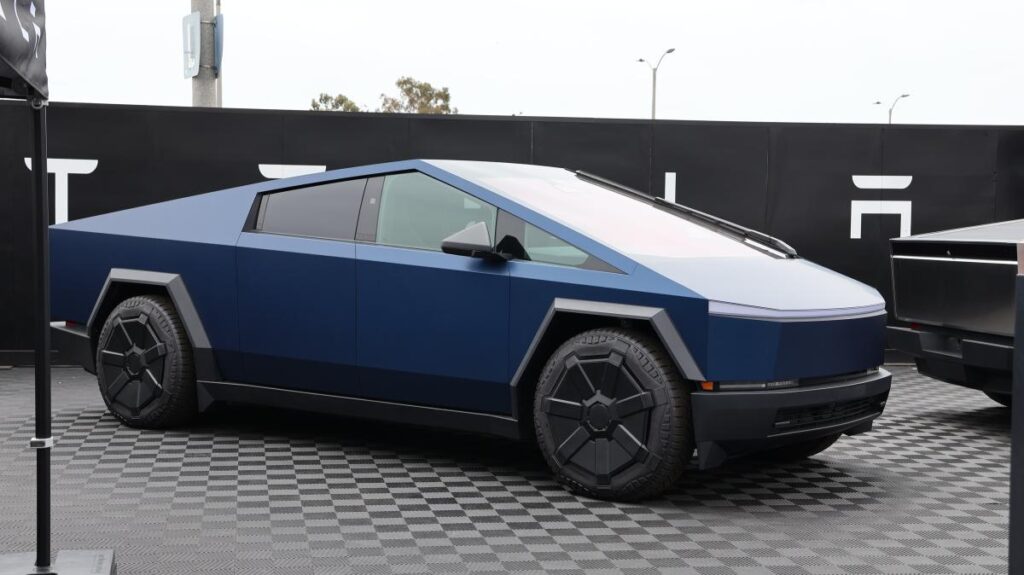Uruguay is emerging as an unexpected hub for Tesla vehicles, even without an official presence or dealership support from the electric vehicle manufacturer. Despite lacking avenues for direct sales or service from Tesla, many individuals in Uruguay have been able to procure their electric cars through unofficial channels. The process often involves importing Teslas, primarily from China, where around half of all vehicles are manufactured. Ramiro Duer, the owner of AutoImport, shares insights into his operations, revealing that he has imported 80 Teslas through a discreet partnership with Chinese suppliers over the past year. This arrangement includes purchasing vehicles from dealerships in China and coordinating shipping logistics, such as acquiring space on vessels and managing documentation, which can take several weeks.
While it is difficult to ascertain the exact number of Teslas in Uruguay, the reported figures vary greatly. The first Tesla to be registered in the country was a Model 3 that arrived in 2020, and by 2021, some reports indicated there were 42 Teslas on the road. However, contrasting claims emerge, including one from a government agency noting approximately 80 imports from 2020 to 2024, with 50 coming from the U.S. Anecdotal evidence suggests the actual number may be far greater; one owner claims there are over 100 Teslas in the region. Many owners have adapted to the limitations of not having official support, with some relocating SIM cards into their cars for connectivity, while third-party mechanics across Latin America have gained familiarity with Tesla repairs, despite potential long wait times for parts.
In the upscale coastal city of Punta del Este, sightings of Teslas have become increasingly common, showing growth in the EV segment in this niche market. Observers remark on the growing presence of Teslas in everyday locales, like school parking lots and social venues, indicating a shift in consumer patterns towards electric vehicles. Nonetheless, Tesla’s expansion in South America has been gradual. Reports indicate that the company has opened its first dealership in Chile as of February 2024 and introduced its first Supercharger stations in the region. Although these developments mark a significant step forward for Tesla, competition remains stiff as other brands, particularly Chinese EV manufacturer BYD, are experiencing remarkable growth in Uruguay.
BYD has become the second leading electric vehicle brand in the Uruguayan market as of July 2023, showcasing a staggering year-over-year growth of 879% and establishing a strong retail presence with 26 dealerships across the country. Factors such as a well-established public charging network, enticing tax benefits for electric vehicle purchasers, and streamlined processes for vehicle imports are contributing to this boom in the EV market. In contrast, Teslas, while fashionable and desirable, face challenges owing to their limited availability and support infrastructure, making it more difficult for potential customers to commit to purchasing them officially.
Interestingly, Tesla’s reach extends beyond Uruguay’s borders. The company has been noted in the context of unusual situations, like the discovery of smuggled Tesla Cybertrucks being seized by authorities in Russia. These incidents illustrate the multifaceted nature of Tesla’s international presence and the varying degrees of legality regarding the sales and usage of its vehicles across different nations. The narrative surrounding Tesla in these contexts highlights the complex interactions between local laws, international commerce, and the allure of highly-regarded brands.
The CEO of Tesla, Elon Musk, has found himself embroiled in media drama involving the Cybertruck. A claim surfaced from a Russian military leader who asserted that Musk had disabled a Cybertruck remotely, which had been modified with military capabilities. Musk dismissed the notion that he had provided a Cybertruck to any military personnel, deriding the suggestion as absurd in an online post. This incident brings attention to both the durability of Tesla’s branding in global discourse and the unconventional roles its vehicles play in various geopolitical landscapes.
As Uruguay navigates the influx of imported Teslas and the growth of alternatives like BYD, it underscores the evolving landscape of electric vehicles in emerging markets. The ease of importing vehicles, paired with local incentives and developing infrastructure, is reshaping transportation choices for consumers in Uruguay. The growing presence of Teslas showcases a unique blend of demand amidst official constraints, while shifting preferences in electric vehicle brands reflect broader trends in the automotive industry as electric models gain traction worldwide.

